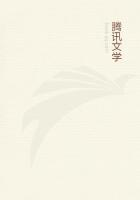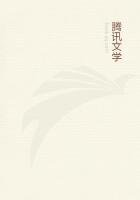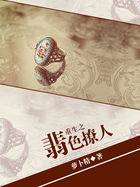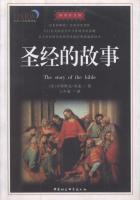The scapegoat by means of which the accumulated ills of a whole year are publicly expelled is sometimes an animal. For example, among the Garos of Assam, besides the sacrifices for individual cases of illness, there are certain ceremonies which are observed once a year by a whole community or village, and are intended to safeguard its members from dangers of the forest, and from sickness and mishap during the coming twelve months. The principal of these is the Asongtata ceremony. Close to the outskirts of every big village a number of stones may be noticed stuck into the ground, apparently without order or method. These are known by the name of asong, and on them is offered the sacrifice which the Asongtata demands. The sacrifice of a goat takes place, and a month later, that of a langur (Entellus monkey) or a bamboo-rat is considered necessary. The animal chosen has a rope fastened round its neck and is led by two men, one on each side of it, to every house in the village. It is taken inside each house in turn, the assembled villagers, meanwhile, beating the walls from the outside, to frighten and drive out any evil spirits which may have taken up their residence within. The round of the village having been made in this manner, the monkey or rat is led to the outskirts of the village, killed by a blow of a dao, which disembowels it, and then crucified on bamboos set up in the ground. Round the crucified animal long, sharp bamboo stakes are placed, which form chevaux de frise round about it. These commemorate the days when such defences surrounded the villages on all sides to keep off human enemies, and they are now a symbol to ward off sickness and dangers to life from the wild animals of the forest. The langur required for the purpose is hunted down some days before, but should it be found impossible to catch one, a brown monkey may take its place; a hulock may not be used. Here the crucified ape or rat is the public scapegoat, which by its vicarious sufferings and death relieves the people from all sickness and mishap in the coming year.
Again, on one day of the year the Bhotiyas of Juhar, in the Western Himalayas, take a dog, intoxicate him with spirits and bhang or hemp, and having fed him with sweetmeats, lead him round the village and let him loose.
They then chase and kill him with sticks and stones, and believe that, when they have done so, no disease or misfortune will visit the village during the year. In some parts of Breadalbane it was formerly the custom on New Year's Day to take a dog to the door, give him a bit of bread, and drive him out, saying, Get away, you dog! Whatever death of men or loss of cattle would happen in this house to the end of the present year, may it all light on your head! On the Day of Atonement, which was the tenth day of the seventh month, the Jewish high-priest laid both his hands on the head of a live goat, confessed over it all the iniquities of the Children of Israel, and, having thereby transferred the sins of the people to the beast, sent it away into the wilderness.
The scapegoat upon whom the sins of the people are periodically laid, may also be a human being. At Onitsha, on the Niger, two human beings used to be annually sacrificed to take away the sins of the land. The victims were purchased by public subscription. All persons who, during the past year, had fallen into gross sins, such as incendiarism, theft, adultery, witchcraft, and so forth, were expected to contribute 28 ngugas, or a little over ā2. The money thus collected was taken into the interior of the country and expended in the purchase of two sickly persons to be offered as a sacrifice for all these abominable crimesone for the land and one for the river. A man from a neighbouring town was hired to put them to death. On the twenty-seventh of February 1858 the Rev. J. C. Taylor witnessed the sacrifice of one of these victims. The sufferer was a woman, about nineteen or twenty years of age. They dragged her alive along the ground, face downwards, from the king's house to the river, a distance of two miles, the crowds who accompanied her crying, Wickedness! wickedness! The intention was to take away the iniquities of the land. The body was dragged along in a merciless manner, as if the weight of all their wickedness was thus carried away. Similar customs are said to be still secretly practised every year by many tribes in the delta of the Niger in spite of the vigilance of the British Government. Among the Yoruba negroes of West Africa the human victim chosen for sacrifice, and who may be either a freeborn or a slave, a person of noble or wealthy parentage, or one of humble birth, is, after he has been chosen and marked out for the purpose, called an Oluwo. He is always well fed and nourished and supplied with whatever he should desire during the period of his confinement. When the occasion arrives for him to be sacrificed and offered up, he is commonly led about and paraded through the streets of the town or city of the Sovereign who would sacrifice him for the well-being of his government and of every family and individual under it, in order that he might carry off the sin, guilt, misfortune and death of all without exception. Ashes and chalk would be employed to hide his identity by the one being freely thrown over his head, and his face painted with the latter, whilst individuals would often rush out of their houses to lay their hands upon him that they might thus transfer to him their sin, guilt, trouble, and death. This parade over, he is taken to an inner sanctuary and beheaded. His last words or dying groans are the signal for an outburst of joy among the people assembled outside, who believe that the sacrifice has been accepted and the divine wrath appeased.

